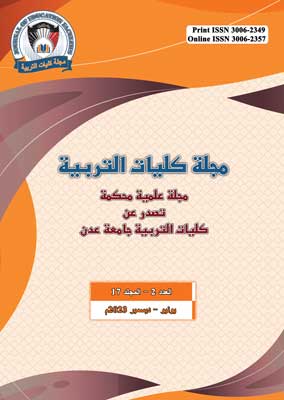Ibn Ativah Al-Andalusi (d.542AH) Differed in his Brief Interpretation of Makki Bin Abi Talib Al-Qaisi (d. 437AH) in his Book the Problem of Parsing the Qur'an in Mansubah
Keywords:
Makki, Ibn Atiyya, Mukhilafah, MansūbAbstract
Research Title ( Ibn Atiyah Al-Andalusi’s (d. 542 AH) disagreement in his brief interpretation of Makki bin Abi Talib Al-Qaysi (d. 437 AH) in his book The Problem of Parsing the Qur’an, in the chapter on Mansūb, a grammatical study).
The compilers and interpreters of the Qur’an have copied extensively from the books of Makki ibn Abi Talib al-Qaisi, especially his book (The Problem of Parsing the Qur’an). Their positions on these quotations have varied between supporting some of them and opposing others. The scholar may disagree with Makki on an issue, and among those who disagreed with him is Ibn Attiya Al-Andalusi in his interpretation (Al-Muharrar Al-Wajeez), especially in the chapter on mansūb, and the researcher studied these issues in which Ibn Attiya disagreed with Mecca. In the chapter on mansūbatIbn Atiyyah was correct in some of them, and some of them were attributed to Makki, and they were by a grammarian who preceded him. Perhaps Makki was famous for them as an artist. !� Bit
to him. And it has I followed the descriptive analytical approach. Through the following:
I created an appropriate title for each issue.
I mentioned the noble verse about which the discussion took place.
The issue was issued in the text of Makki bin Abi Talib, then it was repeated in the text of Ibn Attiya. The issue was presented in its context, including books of interpretation, readings, books on parsing of the Qur’an, and grammatical books, mentioning the most important opinions of scholars on it according to chronological order.
I attributed the opinions that I found to their owners, and documented them from their books, and from those who did not have a book, and documented them from the books of his students, or the closest source that mentioned the aforementioned opinion.
I concluded each issue by choosing the most correct statement from my point of view
Among the most important results reached by the researcher:
1-Many interpreters and interpreters of the Qur’an relied on (the problem of Makki ibn Abi Talib) and were influenced by it, and quoted from it in many places in their books, the most important of them being Ibn Atiya in his book (The Brief Editor). Some of the sayings that Ibn Attiya attributes to Makki were spoken by grammarians before him, such as coppersmiths and glaziers, and perhaps Makki is best known for them.
2-Some of the sayings that Ibn Atiyyah rejected were approved by some scholars, such as Abu al-Baqa’, Abu Hayyan, and al-Samyn, and while others Ibn Atiyya was correct. In Return it to her.
Downloads
Published
How to Cite
Issue
Section
License
Copyright (c) 2023 Journal of the Faculties of Education - University of Aden

This work is licensed under a Creative Commons Attribution-NoDerivatives 4.0 International License.

